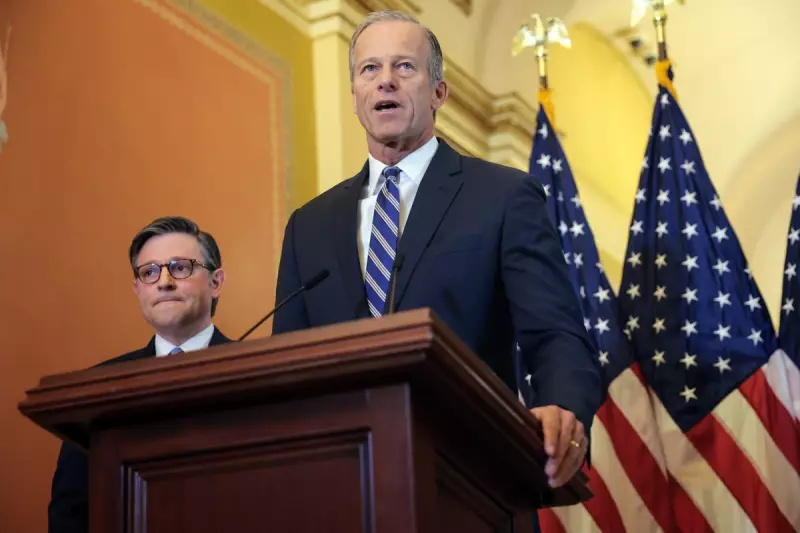
In a striking diversion from pressing national affairs, former President Donald Trump has ignited fresh controversy with comments shifting blame onto Democrats for the Jeffrey Epstein scandal. The remarks came precisely as Washington braces for a potential government shutdown, with critical funding negotiations reaching a crescendo.
A Political Distraction Amid Fiscal Peril
With mere days remaining to pass a crucial funding bill and avert a partial government closure, political focus was unexpectedly redirected by Mr. Trump. Using his social media platform, Truth Social, he posited that Democrats, not Republicans, were the true beneficiaries of Epstein's infamous activities.
This assertion starkly contrasts with the widely documented associations of various high-profile figures across the political spectrum with the convicted sex offender. Legal proceedings continue against Epstein's associates, making Trump's intervention particularly timed.
The Looming Government Shutdown
The backdrop to this political theatre is a severe deadline. Congressional lawmakers have until Friday to approve a substantial $1.2 trillion spending package. Failure to do so will trigger a partial government shutdown, disrupting federal services and furloughing thousands of workers.
This high-stakes negotiation demands bipartisan cooperation, a commodity often in short supply in the current polarized climate. The President's comments risk further inflaming tensions and complicating an already delicate legislative process.
Historical Context and Recurring Battles
This fiscal standoff is not an isolated incident but part of a recurring pattern of budgetary brinkmanship in Washington. These disputes frequently threaten economic stability and delay vital services for millions of Americans.
The political manoeuvring and last-minute negotiations highlight the challenges of governance amid deep partisan divides, where consensus is often elusive until the final hour.
Broader Implications
The convergence of a potentially devastating shutdown with inflammatory remarks from a leading presidential candidate underscores the complex and often turbulent nature of American politics. It raises questions about priorities, the focus of political discourse, and the ability to address governance fundamentals amidst sensationalist claims.
All eyes remain on Capitol Hill as the deadline approaches, determining whether pragmatism or political posturing will prevail.





